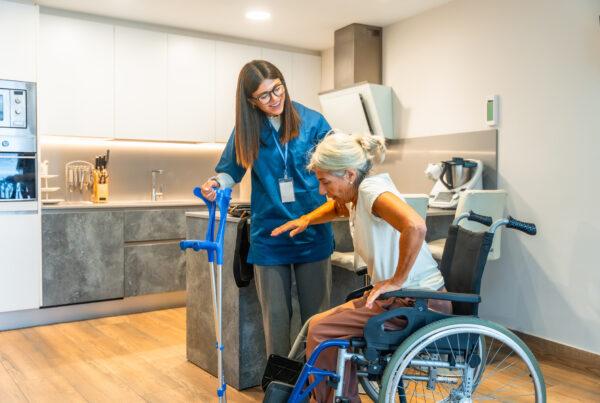
Whether you’ve just completed your health care aide training or are already working in the field, prioritizing self-care is essential for long-term success. Working as a health care aide can be deeply fulfilling. You make a direct difference in the lives of patients and their families every day.
The role can also be physically demanding and emotionally draining. Without proactive self-care, burnout can creep in, affecting not only your well-being but also the quality of care you provide. Here are practical, effective strategies to help you manage stress, protect your energy, and maintain a healthy work-life balance.
Recognizing the Signs of Burnout
Before you can prevent burnout, you need to recognize it. Common signs include:
- Constant fatigue even after rest
- Emotional exhaustion and irritability
- Reduced motivation or compassion fatigue
- Difficulty concentrating or making decisions
Catching these early can help you take action before stress impacts your health and career.
Setting Healthy Boundaries
It’s easy to feel like you must always say “yes” to extra shifts or additional responsibilities, especially when patients need you. However, learning to set limits ensures you can sustain your work in the long term.
If possible, coordinate with your employer to create a schedule that allows you to rest and recover between shifts.
Maintaining Physical Health
As you discovered in health care aide training, a physically demanding job like health care requires a strong, healthy body. Regular exercise improves stamina and reduces stress. Eating balanced meals keeps your energy steady throughout the day, while staying hydrated helps you remain focused and alert. Your body is your most important tool; treat it well so you can continue to provide safe, effective care.

As health care aide training emphasizes the physically demanding role requires a healthy body
Practicing Emotional Self-Care
Caring for others can take an emotional toll, so finding ways to process your experiences is vital.
Confiding in a trusted friend, colleague, or counselor, or keeping a journal to reflect on your day and identify patterns in your feelings. Exploring hobbies or creative activities that bring you joy outside of work also helps you recharge.
Using Mindfulness and Stress-Relief Techniques
Simple practices like deep breathing, short walks, or meditation can help you reset during or after a stressful shift. Even five minutes of focused breathing in a quiet space can reduce tension and restore mental clarity.

Professional development after health care aide courses increases confidence
Continuing to Learn and Grow
Investing in your professional development through advanced health care aide courses can increase your confidence, efficiency, and job satisfaction. Learning new skills helps you stay engaged and connected to your purpose, which is a powerful buffer against burnout.
Relying on Your Support Network
Colleagues, friends, and family can be invaluable sources of encouragement. Don’t hesitate to reach out when you’re feeling overwhelmed. Sometimes just talking about your day can help lighten the load. In time, you may reach that moment when you realize that taking care of yourself is just as important as taking care of your patients.
With the right self-care habits, you can sustain a fulfilling career, avoid burnout, and continue making a positive impact on those you serve.
Start Your Career on the Right Foot With Comprehensive Health Care Aide Training
If you’re ready to begin a career that’s both rewarding and sustainable, consider earning your health care aide certificate. At AOLCC Alberta, you’ll gain the skills, confidence, and support you need to care for others while also learning how to care for yourself.
Are you ready to make a difference in people’s lives every day?
Your career awaits!






